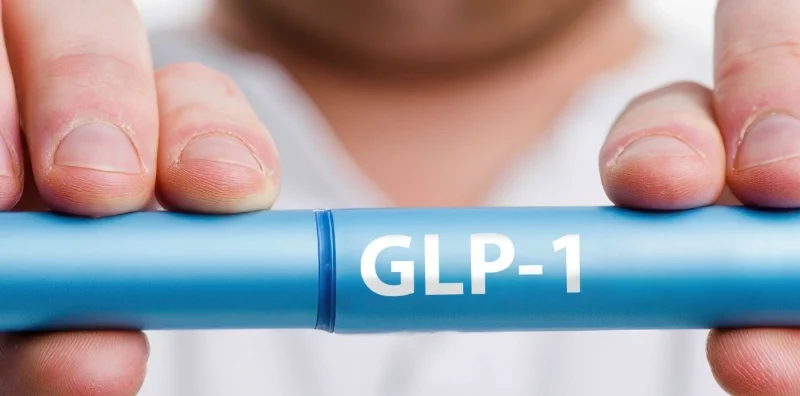The answer is no, and maybe yes.
Before I explain that seemingly cryptic answer, let me explain what Afib is. Afib is an abbreviation for atrial fibrillation, which is an irregular heartbeat in which the heart’s upper chambers (the atria) beat chaotically and rapidly.
As a result, not enough blood is being pumped out of the heart’s upper chamber, so the blood can begin to pool in those chambers. The pooled blood can potentially clot, which can enter the bloodstream and potentially cause a stroke. Usually, once you develop Afib, you have it for life.
Now let’s get back to the omega-3 story. The epidemiological data are clear that the higher the levels of omega-3 fatty acids (EPA and DHA) in the blood, the less likely one is to develop Afib, and the likelihood of having a stroke or dying from a heart attack is also significantly decreased (1).
This is good news, and it seems like a good reason to take omega-3 fatty acids as a supplement. On the other hand, in clinical trials using omega-3 fatty acid supplements, there is a statistically significant increased risk of atrial fibrillation (Afib) (2).
This has led many physicians to suggest that you shouldn’t take more than one gram of omega-3 fatty acids daily. Unfortunately, clinical trials using this low level of omega-3 fatty acid supplementation have been unable to show any significant cardiovascular benefits (3).
So, why the discrepancy? The issue isn’t the omega-3 fatty acids themselves, but rather how the supplements used in these clinical studies are manufactured. The manufacturing of most omega-3 acid supplements starts with basically the same raw material source (usually sardines and anchovies) that are initially low in omega-3 fatty acids. To create a viable commercial product, you must increase the concentration of these omega-3 fatty acids. This can only occur through a multi-step process of converting crude fish oil into ethyl esters and then concentrating these ethyl esters to achieve higher concentrations of omega-3 fatty acids.
Not surprisingly, a significant amount of residual material is generated during the process. So, how do you eliminate this waste material before you have a commercial product? For the past 40 years, the answer has been molecular distillation.
Molecular distillation utilizes high heat (typically around 190 ℃) under vacuum, allowing the separation of omega-3 fatty ethyl esters from the residual material generated during the concentration process. Unfortunately, during this process, the omega-3 fatty acids can become isomerized into trans fatty acids. This new trans configuration turns them from potentially powerful anti-inflammatory nutrients into anti-nutrients that can inhibit the actions of the other omega-3 fatty acids. I believe this is the underlying cause of the potential development of atrial fibrillation (Afib) when using omega-3 fatty acid supplements isolated by molecular distillation. The ability of trans fatty acids to cause arrhythmias is well known (4, 5).
Ok, then what is the solution? I believe it’s a new manufacturing technology called super-critical fluid (SCF) technology. Certain gases (like carbon dioxide) under very high pressure can be transformed into a liquid-like form that can dissolve the omega-3 fatty acids at much lower temperatures (40-50 ℃). Now, the omega-3 fatty acid esters can be separated from the residue generated during the concentration process much more efficiently and at a far lower temperature, which eliminates the formation of isomers that likely contribute to the generation of Afib. It’s a more expensive purification technology, but one that provides a superior product that can be used at higher levels without the concern for causing Afib.
Standard measures for omega-3 fatty acid supplements, such as total oxidation products (TOTOX), would not reflect the existence of trans omega-3 fatty acid isomers. The only way to know that levels of trans omega-3 fatty acids are exceptionally low is to see if the omega-3 product has been refined by SCF technology. The vast majority of omega-3 fatty acids have not.
The benefits of high-dose omega-3 fatty acids are powerful if you take adequate levels to lower the AA/EPA ratio in the blood, which reduces chronic low-level inflammation in every organ in the body. That was the premise of my book, The OmegaRx Zone: The Miracle of the New High-Dose Fish Oil, which was published in 2001 (6). It was this book that started the exponential rise of omega-3 fatty acid supplement sales worldwide. The use of SCF-refined omega-3 fatty acid concentrates takes the potential of high-dose omega-3 fatty acids described in my book to an even greater likelihood by reducing the risk of developing Afib when using SCF-refined omega-3 fatty acids.

References
1. O’Keefe JH, Tintle NL, Harris WS, et al. Omega-3 blood levels and stroke risk: A pooled and harmonized analysis of 183,291 participants from 29 prospective studies. Stroke. 2024;55:50-58. doi: 10.1161/STROKEAHA.123.044281.
2. Lombardi M, Carbone S, Del Buono MG et al. Omega-3 fatty acids supplementation and risk of atrial fibrillation: An updated meta-analysis of randomized controlled trials. Eur Heart J Cardiovasc Pharmacother. 2021;7:e69-e70. doi: 10.1093/ehjcvp/pvab008.
3. Manson JE, Cook NR, Lee IM et al. Marine n-3 fatty acids and prevention of cardiovascular disease and cancer. N Engl J Med. 2019;380 :23-32. doi: 10.1056/NEJMoa1811403.
4. Lemaitre RN, King IB, Raghunathan TE, et al. Cell membrane trans-fatty acids and the risk of primary cardiac arrest. Circulation. 2002;105:697-701. doi: 10.1161/hc0602.103583.
5. Katz AM. Trans-fatty acids and sudden cardiac death. Circulation. 2002;105(6):669-71.
6. Sears B. The OmegaRx Zone. Regan Books, Harper Collins. New York, NY. 2001





4 comments
I think what I’m hearing you say is that the concerns for inducing Afib by consuming fish oil in large doses were true before you started using SCF process in your oil. In other words you older oils, using Molecular destillation, were creating Isomers that could trigger AFib if taken in large doses and now with the new process they are safe in large doses.
Trans fatty acids have been associated with arrhythmia for a long time (https://doi.org/10.1161/hc0602.1035). Primary sources of trans fatty acids in the diet are partially hydrogenated vegetable oils, and they no longer have Generally Recognized as Safe (GRAS) status. However, they are still in the diet since the FDA allows them in food products if their levels are less than 0.5 grams per serving. Trans fatty acids can also be generated by high heat, such as frying and grilling. Trans fatty acids are also found in small amounts in milk. Unlike partially hydrogenated vegetable oils, omega-3 fatty acids do have GRAS status.
A meta-analysis of 17 studies has not shown any relationship between blood levels of omega-3 fatty acids and Afib (doi: 10.1016/j.jacc.2023.05.024). Meta-analysis of studies using pharmaceutical drugs containing EPA and DHA that have shown a potential association with Afib in individuals with high triglycerides and elevated CV risk (doi: 10.1093/ehjcvp/pvab008). However, these pharmaceutical drugs are processed to a much higher concentration of omega-3 fatty acids primarily for patent purposes. This additional processing to increase their concentration may have introduced isomerization during the manufacturing process. This is why we have maintained a 60% EPA and DHA upper concentration limit in our products for the past 25 years, aiming to prevent such potential isomerization from occurring. Thus, I am not concerned about our earlier omega-3 fatty acid products. Moving to SCF refining in the final refining step of our products further reduces the potential for isomerization.
What does this mean for the Zone fish oil I still have that isn’t your “new Omega RX” as described in the A-Fib article? I have two bottles of Fish Oil that was sent before the “New Omega RX” was introduced.
I would continue using them as I am personally doing until I finish my current supply.
Trans fatty acids have been associated with arrhythmia for a long time (https://doi.org/10.1161/hc0602.1035). Primary sources of trans fatty acids in the diet are partially hydrogenated vegetable oils.
A recent article suggests no association of Afib with omega-3 fatty acids (doi: 10.1016/j.jacc.2023.05.024). While this only indicates that more studies need to be done, it makes perfect sense to move to new manufacturing technologies that reduce the potential production of trans fatty acids in fish oils. There isn’t much I can do about partially hydrogenated vegetables in the diet, which are consumed in far greater quantities.